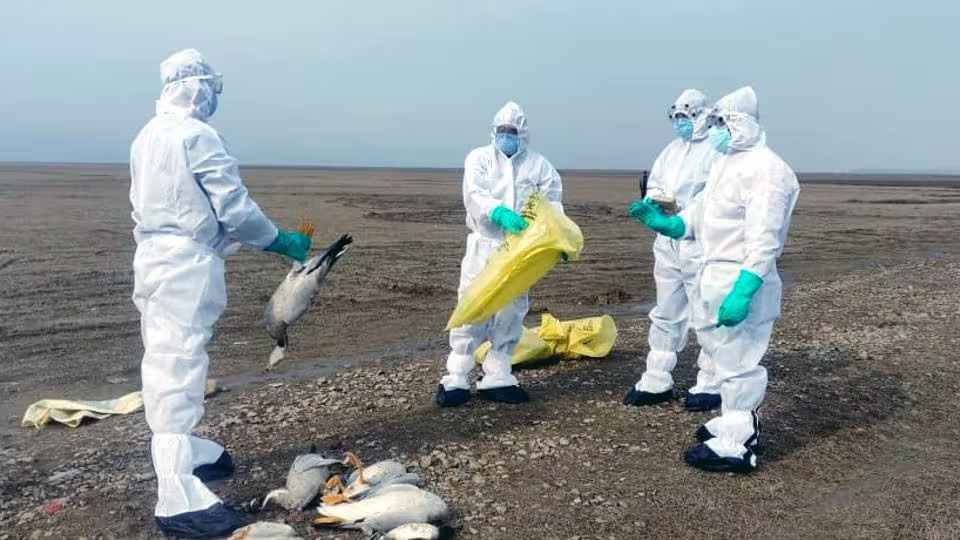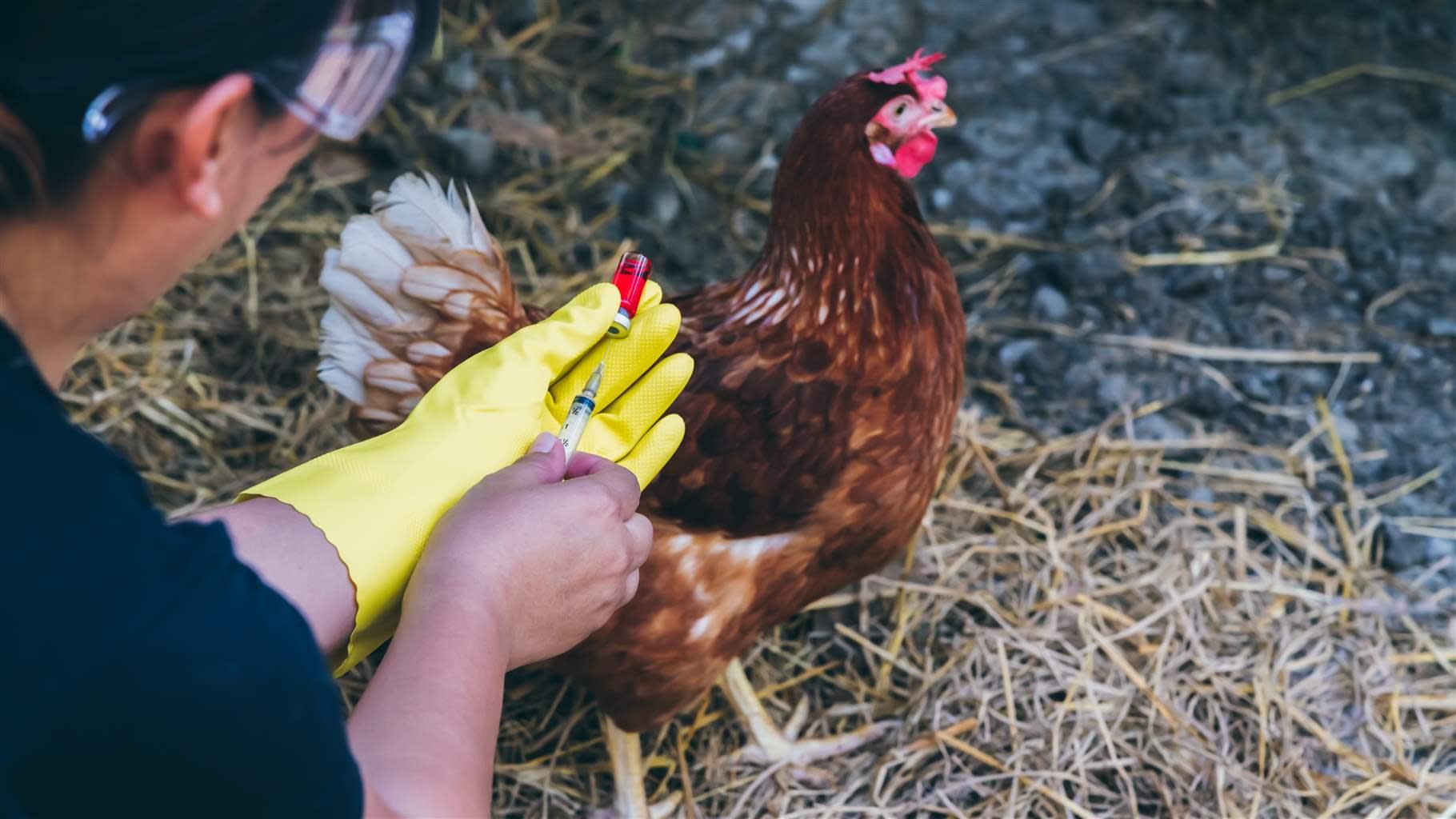U.S. to test shots against bird flu outbreak, as Biden administration weighs poultry vaccinations

U.S. to test shots against bird flu outbreak, as Biden administration weighs poultry vaccinations
By Alexander Tin
 Federal scientists are gearing up to test the first vaccines in poultry against bird flu in years, as Biden administration officials say they have now begun weighing an unprecedented shift in the U.S. strategy to counter the growing outbreak.
Federal scientists are gearing up to test the first vaccines in poultry against bird flu in years, as Biden administration officials say they have now begun weighing an unprecedented shift in the U.S. strategy to counter the growing outbreak.
The move comes amid mounting concern over the threat posed by the ongoing spread of highly pathogenic avian influenza over the past few years, which has devastated flocks of wild and commercial birds around the continent.
A record 58 million birds — mostly commercially-raised poultry — have died in the outbreak so far, according to figures tallied by the USDA's Animal and Plant Health Inspection Service — either killed by the virus itself or put down in efforts to quash its transmission. Every state has detected the virus spreading among wild birds and 47 have spotted them in poultry.
"The decision to proceed with vaccination is complex, and many factors must be considered before implementing a vaccination strategy," USDA spokesperson Mike Stepien said in a statement, adding that the inspection service is discussing the options and "soliciting input from many different industry stakeholders that would be impacted."
While the Biden administration has so far not greenlighted the use of vaccines for highly pathogenic avian influenza, several shots had been licensed for potential use in previous outbreaks. Poultry are already regularly vaccinated for other diseases, like infectious bronchitis.
While animal vaccines can take years to be licensed, Stepien said some parts of the process can be accelerated for emergencies.
It is not yet clear whether vaccines are available that will work against clade 2.3.4.4b, the strain behind the current outbreak in the U.S.
"There are a lot of moving parts to this kind of testing. And some of it is just pure logistics of getting everything in place to do the testing, getting the vaccines that are updated, getting things from parties that are involved, different manufacturers," said Erin Spackman, a virologist who studies avian influenza vaccines at the USDA.
While it is not always a requirement for animal shots to be licensed by the department, the trials will offer an early independent evaluation of how well a vaccine works in this case. Antibody studies suggest earlier vaccines might not be as well-matched against the strain now driving the current outbreak, prompting the need for tests.
"On the test, it's a twofold reduction, but that makes it sound a lot closer related than it is. In vaccine-speak, it means it's starting to drift away," said Spackman.
Spackman said evaluating the vaccines can take three months, from when birds get their shot — often in the back of the neck or thigh — to studying their response to the virus after immunity develops.
Vaccine makers say they are also closely tracking deliberations by the U.S. and other countries over the possibility of poultry vaccination, as well as assessing their own shots.
A spokesperson for Merck Animal Health said the company has an "extensive, ongoing research program" developing vaccines that can work with so-called Differentiating Infected from Vaccinated or DIVA strategies — an approach that involves systematically hunting for the virus among vaccinated flocks, in hopes of preventing undetected spread among immunized birds.

When to vaccinate poultry?
Officials have so far been wary of deploying vaccines against the outbreak, citing concerns that the use of the shots could make it harder to export American poultry products.
"What is the trigger point of when you might use vaccination? And that's what they're looking at. Is it so many birds in a poultry farms in an area getting infected? Or is it a certain amount of economic loss? Or is it because a neighboring state has the virus in poultry, and you're concerned? So there's those are really the tough, tough questions," said poultry veterinarian David Swayne.
Before retiring to become a consultant, Swayne served for nearly three decades in the USDA's infectious disease arm and was the director of the department's top research facility for dangerous pathogens.
